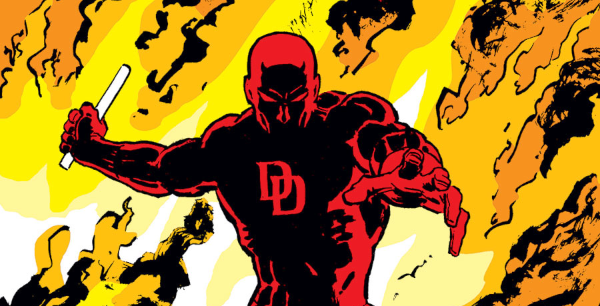“Transformaciones” es el título que le he dado a un grupo numeroso de publicaciones que he recopilado a lo largo de mi vida siendo aficionado a los comics, y que iremos compartiendo paulatinamente dentro de este blog. Algunas de ellas datan de décadas atrás y en los albores del Internet como plataforma de expresión escrita, incluyendo artículos de opinión, entrevistas y contribuciones esenciales en los años mozos de la “blogósfera”, repleta de voces con gran poder y con algo que decir acerca de este hobby que tanto nos apasiona. Todas ellas diseccionan al mundo de los comics desde diferentes aristas y matices. Algunos de ellos representan un retrovisor bastante interesante, y necesario para entender a su evolución como manifestación de las artes y plataforma multi-género.
Entre 2004 y 2005, los autores Matt Fraction y Joe Casey, dos auténticos baluartes dentro de la escena comercial e independiente del comic, publicaron a través de la página Comic Book Resources una serie de conversaciones muy interesantes sobre la industria, bajo el título de “The Basement Tapes”. Mi favorita de entre todas ellas fue “The Definitive Run”, la cual desmenuza el efecto que una visión y misión autoral con total claridad y libre de intervención editorial le da al género de superhéroes; creando un acervo tan “definitivo” que puede considerársele como el punto final para una franquicia, algo que es impensado y anatema para un medio comercial que pregona la publicación continua de ficción serializada, y en la búsqueda constante por estirar al “segundo acto” en la vida de su Propiedad Intelectual año con año y generación tras generación.
– – – – – – – – – –
The Definitive Run
THE BASEMENT TAPES
ISSUE #27
Publicada originalmente en CBR dot com el 15 de febrero de 2005.
 Joe Casey: Y’know, now that I think about it—before Miller and Moore, you could have a definitive run on something that didn’t exactly wrap up in a blaze of glory. Certainly, Lee & Kirby’s last issue of Fantastic Four wasn’t some spectacular finale to their run. Englehart’s Marvel work in the ‘70s tended to get cut off prematurely or fall victim to some editorial bullshit, but his collective work on Captain America, Dr. Strange and Avengers are all considered classics.
Joe Casey: Y’know, now that I think about it—before Miller and Moore, you could have a definitive run on something that didn’t exactly wrap up in a blaze of glory. Certainly, Lee & Kirby’s last issue of Fantastic Four wasn’t some spectacular finale to their run. Englehart’s Marvel work in the ‘70s tended to get cut off prematurely or fall victim to some editorial bullshit, but his collective work on Captain America, Dr. Strange and Avengers are all considered classics.
But Miller and Moore changed all that. Those guys, and others who were of their mindset, wanted the satisfaction of an ending to their stories. But these days… I don’t see that kind of passion for providing endings. Maybe because, collectively as an industry, we’re so bad at it that we’ve just given up on it as a skill worth possessing…? Maybe publishers don’t want those kinds of endings for fear of killing interest in the franchise. If that’s the case, God help us all, because I don’t think anything ever did more good for the Batman franchise than Dark Knight and Year One.
 Matt Fraction: I’ve never understood, honestly, the compulsion to keep trotting a character out if nobody is really saying anything with it. I mean, it devalues the brand more to dilute it with crap than to rotate it in and out of circulation—look at the Batman franchise of movies, I mean, or Star Trek or James Bond, you know? Like, imagine if there was a new James Bond movie every month, you know? Who would want to go see it? Or “Star Trek,” which has just been put out to pasture. Again.
Matt Fraction: I’ve never understood, honestly, the compulsion to keep trotting a character out if nobody is really saying anything with it. I mean, it devalues the brand more to dilute it with crap than to rotate it in and out of circulation—look at the Batman franchise of movies, I mean, or Star Trek or James Bond, you know? Like, imagine if there was a new James Bond movie every month, you know? Who would want to go see it? Or “Star Trek,” which has just been put out to pasture. Again.
It makes more sense to me that Marvel, after something like Born Again happened, put Daredevil away for a little while. Let people sit with Born Again and be satisfied and give it a year or two and start to build anticipation and bring him back when the title, character, franchise, and brand—all four separate things, in my mind—are rested and ready. It’s not as though the comics world will forget Daredevil if Marvel retires the title and character for a year or two when Bendis is done with him, you know? Comics are a culture in which people remember how many circles were on the front of Thor’s chest in Avengers #17 vs. Avengers #63.
Which is all a long way of saying that the perpetual cycle of publishing makes the definitive run and a meaningful and coherent ending irrelevant.
